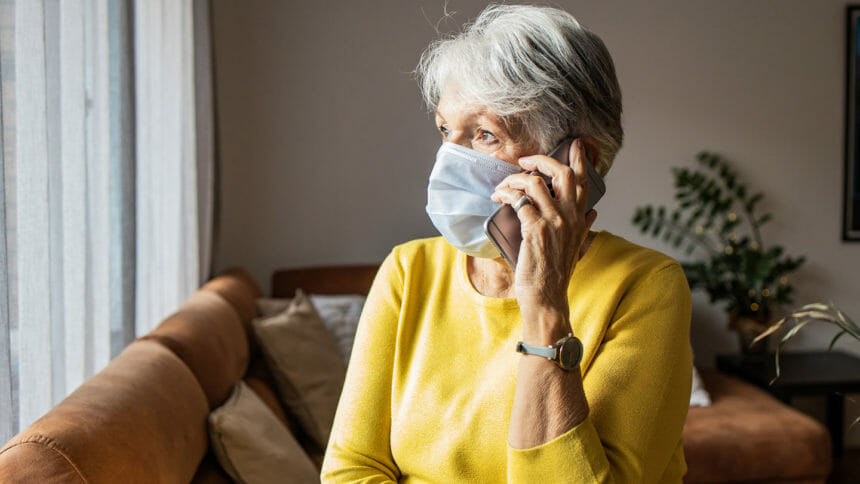
Receiving mental health support over the phone could be a lifesaver for older adults who are grappling with depression and loneliness, according to a new study.
The eight-week intervention during the pandemic revealed that the benefits of phone sessions were better than taking antidepressants, according to the study, published in this month’s issue of The Lancet (Healthy Longevity). A team based at the University of York and Hull York Medical School and at Tees, Esk and Wear Valleys NHS Foundation Trust led the Behavioral Activation in Social Isolation trial, or BASIL+ trial. The initiative, which began in 2020, was the largest trial ever to measure loneliness outcomes using phone therapy.
All of the people in the trial were over 65 years old and had multiple long-term conditions. The people were locked down during the pandemic, raising their risk for loneliness and depression. The study took place at 26 sites in the UK during 2020 and 2021.
The people receiving care were randomly matched to a control group. There were 435 participants in total initially; 218 received phone counseling. The 217 people in the control group received usual care and some other COVID-19 well-being resources. Participants in the counseling group received up to weight weekly sessions with people who were trained in the BASIL+ method. Three months after the counseling, all participants reported their depression severity levels.
Participants said their levels of emotional loneliness fell by 21% during the intervention, and the benefits remained at three months after the program started. Anxiety did not decrease.
“We now know that loneliness is as bad for your health as smoking 15 cigarettes a day and depression is a silent killer. All of us working on the BASIL+ trial had older parents and relatives who became socially isolated during lockdown,” Simon Gilbody, a professor at the University of York and Hull York Medical School, said in a statement.




